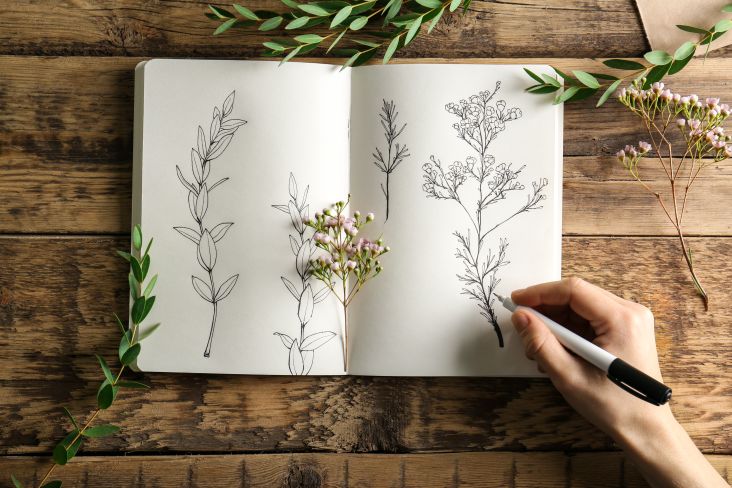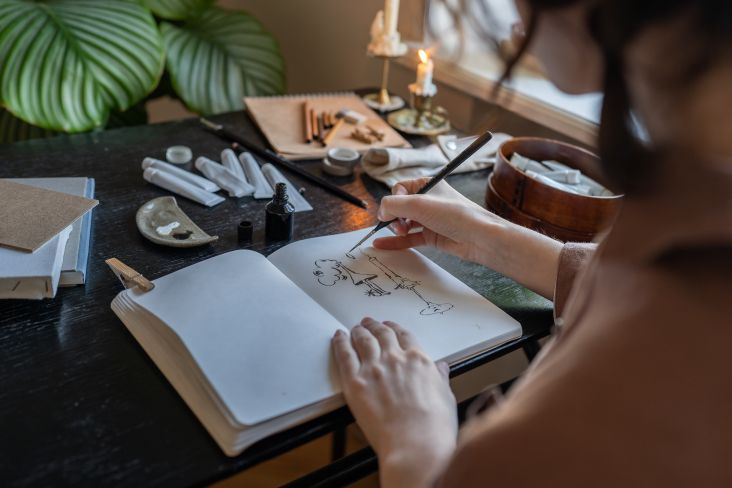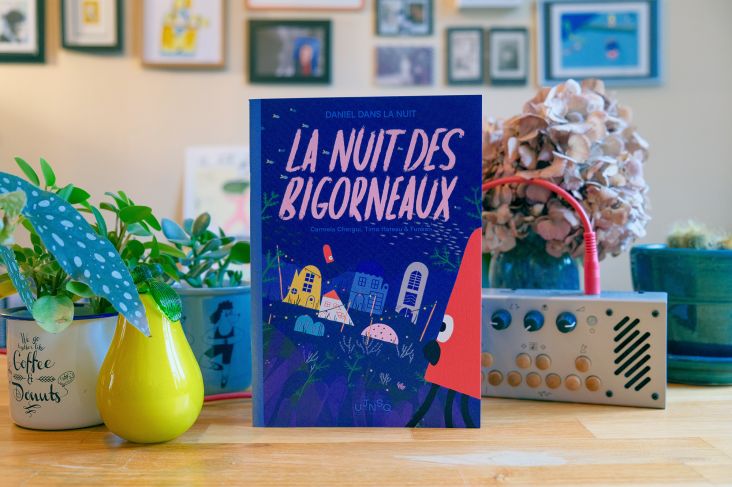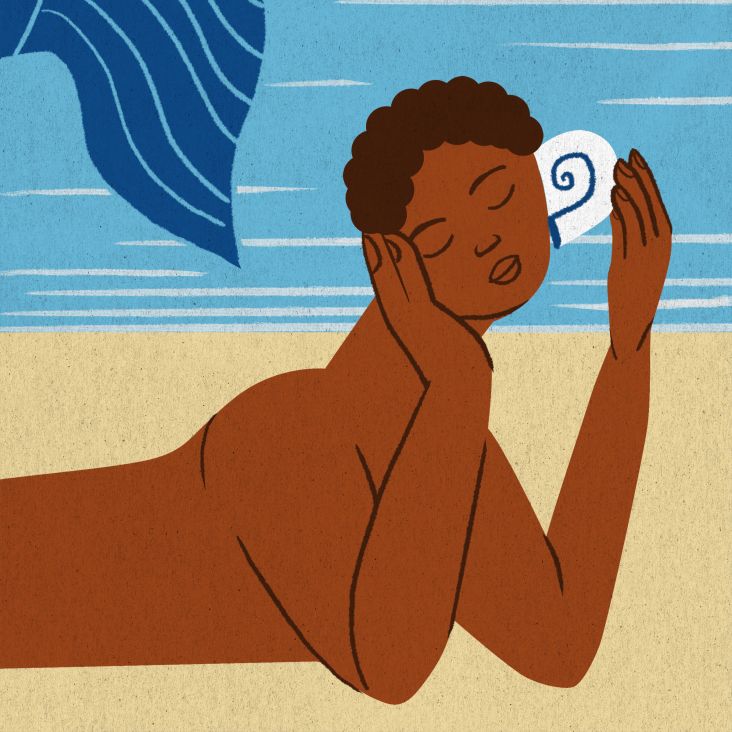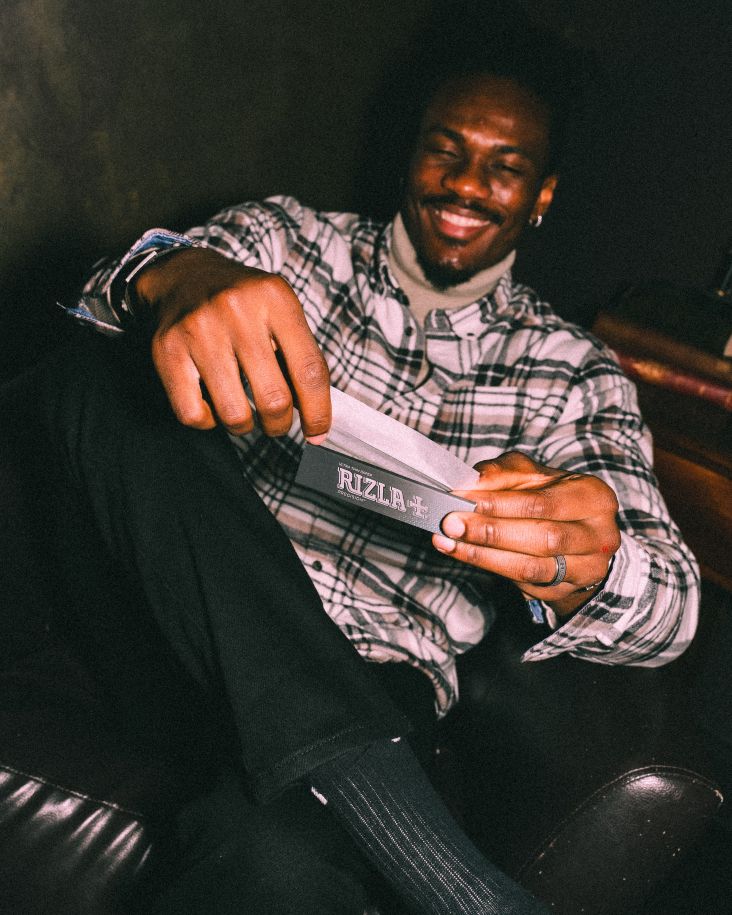The creative's guide to resolutions: how to set and keep your goals for 2024
Now we've passed Blue Monday (what the heck is that anyway?), follow our tips to stick to your artistic resolutions beyond January and throughout the next 12 months.

Image licensed via Adobe Stock
How are you doing with your New Year's resolutions? In recent years, PR companies have come up with two unofficial days on which people are most likely to ditch them: namely Quitter's Day on 12 January and Blue Monday, the third Monday in January, which one travel company dubbed as the most depressing day of the year. Well, we're past both of them now. So, if you're still going, then congratulations!
Away from such PR silliness, though, there's a serious point to be made about sticking to your goals in the face of adversity. People typically ditch their resolutions for a reason, namely that it's tough going. But if you want to achieve your creative goals in life, it will take a certain amount of grit, determination and hard work to do so.
That doesn't mean making yourself ill with worry and driving yourself to burnout, of course: balance is important in all things, not least your creative work. But it does mean making a proper effort to stick to your goals throughout 2024 and not letting them slide. And if you haven't set meaningful goals and resolutions for the year yet, there's no reason you had to do so on 1 January. Now's as good a time as any!
Whether you're a painter, photographer, designer or any kind of creative soul, goal setting is a crucial step in nurturing your craft and advancing your artistic journey. In this article, we'll guide you through setting achievable, inspiring artistic goals and how to plan effectively for a year of creative success and personal growth.
1. Understand what you're trying to achieve
One of the biggest problems people face in sticking to their resolutions is understanding what they're trying to achieve. For example, you may give Dry January a go but then crumple the first time your mates hand you a beer.
That's often because you haven't properly thought through why you want to give alcohol a break. Whether it's to lose weight, reduce dependency, save money or whatever, understanding the reasons for your goals makes it a lot easier to commit to them.
The same goes for creative goals, too. Many designers might resolve to learn motion graphics because "it's good to have a new skill". But actually, is that the best use of your time? Or is it just a knee-jerk reaction to what other people are doing and a general sense of listlessness in your career?
Here's a better way of going about it. To understand what you want to achieve, first reflect on your journey. Look back at your previous year's accomplishments and challenges. What worked well? What didn't?
Once you've got your head around that, then ask yourself: "What do I want to achieve this year?" It could be mastering a new technique, finishing a long-term project, or even exploring a new artistic medium. The important thing is that you've thought about it properly and considered why you want to do it.
When you've decided on that, it will be easier to set specific, practical tasks to achieve this goal because you'll know what you're doing it for.
2. Set SMART goals
Many creative people struggle with setting goals, and it's not that surprising. After all, what we love about the creative profession is the endless array of options it offers us. So it's very easy to get distracted by shiny things and end up veering off course.
SMART is a simple format to make sure you're on the right track. Following these rules should help you set goals that are properly defined and easier to follow through on.
Specific: Your goals should be clear and precise. For example, rather than "I want to draw more," aim for "I will complete one sketch per day."
Measurable: Find a way to measure your progress. This could be through the number of works completed, hours spent or milestones reached.
Achievable: While it's great to aim high, ensure your goals are within reach. For instance, if you've never used 3D software before, aiming to complete a 10-minute animated short within a year could be a tough ask, especially if you're only doing it in your spare time. Modelling a set of characters in 3ds Max, for instance, might be a more achievable goal.
Relevant: Your goals should align with your long-term artistic ambitions and personal values. In other words, think of achieving your goal and how it makes you feel. If it's not your true creative dream, your brain will tell you!
Time-bound: Set clear deadlines for yourself. Having a timeline keeps you on track and helps in maintaining focus.
3. Plan your projects
Yes, it's great to be spontaneous with your art. But if all you ever do is "follow your heart" and act on impulse, you're very unlikely to achieve your goals in the long term. And while the very idea of planning ahead might sound intimidating, it's actually pretty straightforward once you follow these basic principles.
Break down big goals: Divide larger goals into smaller, manageable tasks. This step-by-step approach will stop you from feeling overwhelmed.
Set regular check-ins: Schedule monthly or quarterly progress reviews. This will allow you to adjust your plan as needed based on these reflections.
Stay organised: Use tools like planners, apps, or journals to keep track of deadlines and tasks. Whether this is based on paper or digital doesn't really matter; just make sure it's a system that works for you, and stick to it.
4. Be flexible and resilient
Sticking to your goals doesn't mean rigidly planning out every hour of your year and never veering from this strict plan. Indeed, creatives must always be flexible, adapt to changing circumstances, and change direction when necessary. And that applies here as much as anywhere else.
Be aware that your artistic journey may (in fact, probably will) take unexpected turns. And be open to adapting your goals and plans in response to new opportunities or challenges.
Part of that may involve overcoming creative block. The secret here is to understand that creative blocks are natural and happen to everyone. So, you just need to develop strategies to overcome them, such as changing your environment, experimenting with new techniques, or simply taking a break to recharge. (For more on that, see our article on How to get over creative block.
When it comes to resilience, it also helps to have a supportive, creative community behind you. So, if you work alone, make sure you find other ways to connect with other artists and creatives. If you're a long way from a big city, don't despair: follow our advice on How to beat isolation when you no longer live in a creative hub. Also, consider collaborative projects. They can be a great way to learn from others and expand your creative horizons.
5. Celebrate your milestones
Our final advice is to do something many creatives are very bad at acknowledging your achievements. Most of us don't like to blow our own trumpet and suffer from imposter syndrome to one degree or another. But that can hamper us in achieving our goals, so it's important to recognise when we have done something well.
So make time to celebrate when you hit milestones, no matter how small. This recognition is vital for maintaining motivation and enthusiasm. Also, make an appointment to regularly reflect on what you've learned and how you've grown. This kind of introspection can be incredibly rewarding and enlightening.
Is it worth it?
Does all this sound like hard work? Well, it is, and it isn't. While setting and pursuing goals does require some effort, it also brings rewards in terms of extra energy and motivation, helping you to get out of bed in the morning with a spring in your step. In contrast, blundering through life without any set career goals can leave you feeling lifeless and depressed by comparison.
That doesn't mean you have to beat yourself up if you don't achieve your goals. In fact, most of the time, you probably won't. But that's not what's really important: it's the striving that counts, and in doing so, you may well end up going in new and exciting directions and achieving things you never even considered!
In short, as creatives, our paths are often non-linear and unpredictable. Setting goals and planning for the year ahead gives us direction and purpose in our artistic endeavours. But remember, the journey is as important as the destination. Embrace each step of your creative process in 2024, and let your artistic goals guide and inspire you to new heights.




 by Tüpokompanii](https://www.creativeboom.com/upload/articles/58/58684538770fb5b428dc1882f7a732f153500153_732.jpg)


 using <a href="https://www.ohnotype.co/fonts/obviously" target="_blank">Obviously</a> by Oh No Type Co., Art Director, Brand & Creative—Spotify](https://www.creativeboom.com/upload/articles/6e/6ed31eddc26fa563f213fc76d6993dab9231ffe4_732.jpg)








